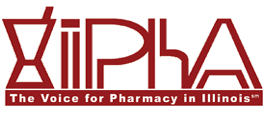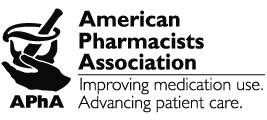Can You Lose NABP Accreditation?
 For specialty pharmacies, wholesale drug distributors, and other pharmaceutical businesses, accreditation from the National Association of Boards of Pharmacy (NABP) is a crucial credential that demonstrates compliance with industry standards. However, NABP accreditation is not permanent, and failure to meet strict ongoing standards can result in revocation.
For specialty pharmacies, wholesale drug distributors, and other pharmaceutical businesses, accreditation from the National Association of Boards of Pharmacy (NABP) is a crucial credential that demonstrates compliance with industry standards. However, NABP accreditation is not permanent, and failure to meet strict ongoing standards can result in revocation.
Understanding the most common reasons pharmacies and distributors lose accreditation can help businesses avoid expensive mistakes. If a business is at risk of losing its NABP accreditation, our experienced Illinois NABP accreditation attorney with The Law Offices of Joseph J. Bogdan, Inc. can help address compliance issues and take corrective action.
Errors in Record-Keeping
Accurate record-keeping is a fundamental requirement for NABP accreditation. Pharmacies and drug distributors must maintain detailed logs of prescription transactions, drug storage conditions, staff records, and compliance reports. Common record-keeping errors that can lead to accreditation loss include:
-
Incomplete or missing prescription records
-
Failure to document storage temperatures and humidity levels
-
Inaccurate or outdated licensing and credentialing records
-
Poor tracking of inventory and controlled substances
Failure to maintain organized and accurate records can raise concerns about compliance and result in accreditation revocation.
Staff Changes and Compliance Issues
Accredited pharmacies and distributors must ensure that their staff meets NABP requirements regarding licensure, training, and ethical conduct. If a pharmacy experiences high employee turnover or fails to replace key personnel, such as the pharmacist-in-charge, it can jeopardize accreditation. Other staff-related issues include hiring unlicensed or uncredentialed staff, failing to keep up with NABP compliance training, and not keeping accurate or detailed staffing timesheets. If a pharmacy or distributor does not properly manage staff changes and personnel compliance, it may face compliance violations and risk losing accreditation.
Failure to Follow Up on Corrective Action Plans (CAPs)
When the NABP identifies deficiencies in a pharmacy’s compliance, it may issue a corrective action plan (CAP) requiring the business to address specific concerns. Failing to follow up on CAPs or implement necessary changes can result in accreditation revocation. Common reasons businesses neglect CAPs include miscommunication between management and staff, underestimation of the severity of compliance violations, and lack of a structured plan to resolve deficiencies. Pharmacies and distributors should take CAPs seriously and work with legal counsel to ensure full compliance.
Lack of an Accreditation Plan
Accreditation is an ongoing process, not a one-time achievement. Businesses that do not maintain a structured plan for continued compliance may lose their accreditation. An effective plan should include regular internal audits to identify potential issues, scheduled updates to policies and procedures, and routine staff training on NABP standards. Without a proactive approach, it is easy for pharmacies and distributors to fall behind on compliance requirements and risk losing their accreditation.
Temperature and Humidity Monitoring Issues
Specialty pharmacies and distributors must store and transport medications under specific temperature and humidity conditions. Improper monitoring can lead to medication spoilage due to temperature fluctuations, failure to document environmental conditions properly, and non-compliance with NABP storage and shipping requirements. Failure to maintain proper temperature and humidity controls can result in serious compliance violations and accreditation loss.
Shipping and Delivery Compliance Failures
Pharmacies and distributors must ensure that medications reach patients and healthcare facilities safely. Common shipping-related issues include using unapproved carriers that do not follow NABP guidelines, not tracking shipments properly, and not verifying delivery to the correct recipient. Improper shipping practices can compromise drug safety and lead to accreditation revocation.
Security and Facility Compliance Issues
Pharmacies and wholesale distributors must implement strict security measures to protect medications from theft, tampering, and unauthorized access. Security-related violations include:
-
Lack of proper surveillance systems and controlled access
-
Failure to secure controlled substances properly
-
Inadequate cybersecurity protections for electronic records
NABP accreditation standards require robust security measures, and failure to comply can result in penalties or loss of accreditation.
Contact an Illinois NABP Certification Attorney
If your pharmacy or wholesale drug distribution business is facing NABP compliance issues, take immediate action. A skilled Illinois NABP accreditation lawyer can help address deficiencies, respond to corrective action plans, and develop a strategy to maintain accreditation. Contact The Law Offices of Joseph J. Bogdan, Inc. at 630-310-1267 today to protect your business and ensure continued compliance with NABP standards. We offer free consultations.














